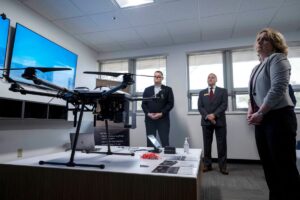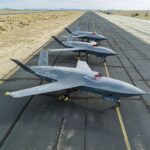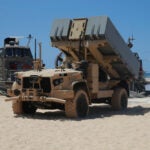
DoD submitted a reprogramming request to Congress on Jan. 31, and legislators are trying to understand the Pentagon's funding needs for the Replicator initiative, which was part of the reprogramming request. Rep. Ken Calvert (R-Calif.), the chairman of the House Appropriations Committee's defense panel, "is tracking Replicator and generally supportive of the concept," Jason Gagnon, a Calvert spokesman, wrote in a Feb. 26 email. "He’s working with DoD to understand their funding requirements to support the initiative." Last August, Deputy…













